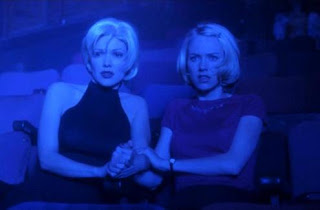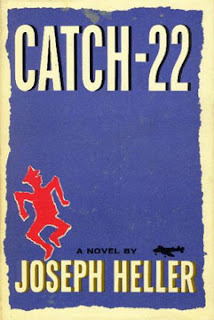
I had never seen a David Lynch movie before, and although I found Mulholland Drive a little frustrating to try to 'get', I really enjoyed it. I have a lot of fun trying to make sense of the plot while at the same time accepting the fact that none of it makes sense. It really makes the interpretations and 'meanings' of the film endless.
Probably the biggest thing I noticed throughout the movie when trying to piece things together was how much it truly did reference other genres. This was especially noticeable when scenes were set up with so much suspense as if something terrifying were about to happen, but then nothing did (most of the time, at least). This happened several times when a character would be walking down a hallway slowly, in silence or else will low, creepy music in the background (I loved the music in this, by the way!) Mulholland Drive definitely plays around with the expectations we have as an audience; things never seemed to end the way we expected them to, or even end or begin at all. I loved the comparison of the plot to a Mobius loop-- twisting and almost making sense but going in a different direction when it starts to get close.
Of course one of the biggest ways the audience is thrown off is through the two main characters becoming completely different characters 1/3 of the way through. I felt like this was a harsh reminder that what we are watching is a film, it's constructed, and it's not reality. We are seeing actors, not true people, and these actors can be placed and changed into different parts. To be honest, I never really viewed Betty and Diane or Rita and Camilla as the same people like it seems like some in our class did. I thought they were definitely parallels of each other-- one, an aspect of naivety and creativity in its young stage, and the other a jaded misery showing the death of creativity.

I enjoyed the article this week, but I felt Nochimson too was trying to make a concrete plot out of the film even though she acknowledged it can't truly be done. My favorite thing is that she talked about Mulholland Drive as a film dealing with the "human condition". She discusses what happens to the characters in the film and compares this to what happens within all of us as human beings: "At the deepest level of our beings, we know that this transformation has taken place for all of us in subconscious darkness, more or less desperately varying with our circumstances." I think this is so true... we have all lost something or watched a dream within us die, and in some way Mulholland Drive really does speak to its audience. Although there is definitely no clear 'meaning' or 'point', I thought the film was really full of emotion and beauty. I'm excited to see some more from Lynch :)








